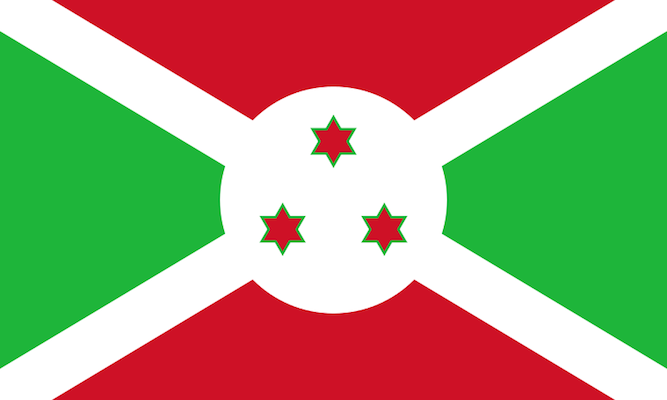In parts 1 and 2 of my expanding series on a lesser-noted legacy of the Rwandan Genocide, I looked at some of the abuses that the Rwandan Patriotic Front (RPF) committed in the past and are committing today. With very close ties to the United States government and military, President Paul Kagame has been able to get away with many things, in large part because he liberated Rwanda from the extremist Hutu dictatorship that was precisely carrying out a genocide against the Tutsi minorities. It’s pretty hard to criticize the person that finally ended one of the very worst genocides of the 20th century, after over 900,000 people had been systematically murdered nationwide, with the world watching and doing nothing.
In part 1, I cited Kagame and the RPF’s consolidation of power and suppression of opposition parties ahead of national elections this year, as well as the creation of a secretive work-prison camp holding abducted children. In part 2, I examined how dissent and new historical research attempts are being silenced on grounds of fomenting genocide and civil war.
In a similar vein, defense lawyers for those charged with crimes involving the 1994 genocide report serious intimidation even though they are merely serving the international community by providing legal counsel to defendants. One American lawyer has actually been arrested as a national security threat and Genocide denier, probably in part because he is representing a client that is an enemy of the individuals in power in the post-Genocide government. NY Times, 6/12/10:
Defense lawyers at the International Criminal Tribunal for Rwanda, which has been prosecuting ringleaders of the 1994 genocide, are threatening to stop participating in cases after one of their colleagues was jailed by the Rwandan government last month.
A growing number of lawyers contend that Peter Erlinder, an American who represents a senior Rwandan Army officer accused of directing death squads, was arrested for his statements at the tribunal even though he is supposed to be protected by diplomatic immunity while working for it.
Mr. Erlinder, 62, is charged with denying Rwanda’s genocide and threatening national security through his writings and speeches. Rwanda’s government argues that Mr. Erlinder’s work can “instigate riots” and “civil disobediences,” but it seems that many of the statements that the Rwandan government finds objectionable are actually part of Mr. Erlinder’s work as a lawyer in the United States and in Arusha, Tanzania, where the United Nations-backed tribunal for Rwanda is based.
So far, 11 lawyers with imminent court appearances have formally requested that the courts postpone their cases. At least 40 in total — a majority of the defense lawyers working for the tribunal — have signed a general petition saying they plan not to work unless their security can be guaranteed.
An article published today suggests that the lawyer who has been arrested might actually have been arrested because outside the ICTR he had decided to represent an opposition candidate who had pointed out the RPF also committed reciprocal atrocities during, preceding, and following the Genocide, when they were a rebel group working to overthrow the Hutu regime and wipe out the genocidaires after the events of 1994. As I discussed at length in part 1 of this series, that’s exactly what did happen, and yet she was arrested as a promoter of “genocide ideology” because she chose to speak out with the truth.
Furthermore, the lawyer in question recently filed a lawsuit, on behalf of the widows of the late presidents of Burundi and Rwanda who were killed in 1994 in an attack on the presidential plane that set the Rwandan Genocide in motion… and the lawsuit alleged (as France has in the past) that then-General Kagame had ordered the RPF’s security detachment in the capital to shoot down the plane. Since Kagame is now president, this is an extremely unpopular move to make within the ruling party’s upper ranks and was probably a serious compounding factor in his arrest. (And from what I understand, it’s much more likely that Hutu military extremists behind the coup shot the plane down, to provide the pretext to seize control and begin the killings within hours, and so this is obviously a very touchy subject with the Tutsis in power.)
Now, I have to state that I have no idea what this lawyer’s actual motivations are. He could very well be sympathetic to the Hutu side or he could be in it for the money (though that’s hard to believe if he’s an ICTR lawyer). Maybe he really believes that the Genocide wasn’t planned, when he says that on behalf of his clients charged with war crimes. However, he is a law professor and an international lawyer. It’s much more likely that he believes he’s just fulfilling a necessary role in a fair judicial system, which is that somebody has to represent the worst of the worst, or even just “the other side” of the story, to make sure everyone gets their day in court without making a mockery of the system. His legal statements probably don’t reflect his personal beliefs.
On balance, sure, the Rwandan Patriotic Front were almost certainly the “good guys,” if we have to pick, but that doesn’t mean they haven’t done bad things (e.g. killing Hutu civilians, destabilizing the Democratic Republic of the Congo several times), and as a political party in the post-Genocide period, they have been doing some very bad things that undermine the fledgling democracy of the country. If they continue to intimidate people and silence dissent or alternative viewpoints, they are not protecting any Rwandans or national security, but rather they are protecting themselves and their power… and the international community should be willing to criticize that and pressure the government to stop. Defense lawyers, who already face a nasty job in general, should not be facing the threat of twenty-year prison sentences just for doing their jobs to help international justice be served.
This article originally appeared on Starboard Broadside.



